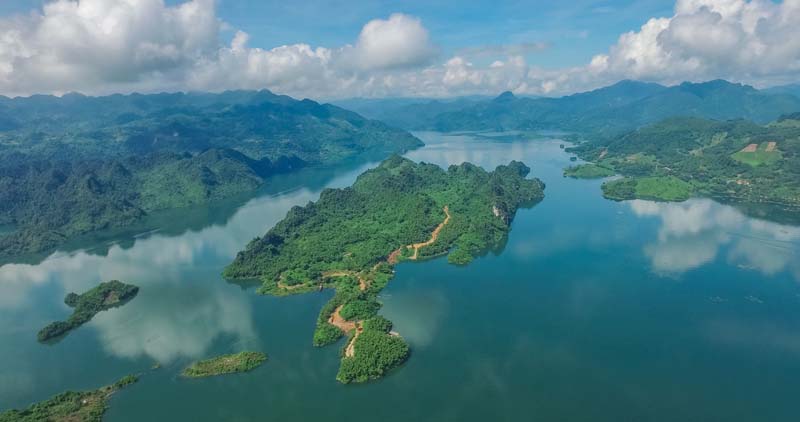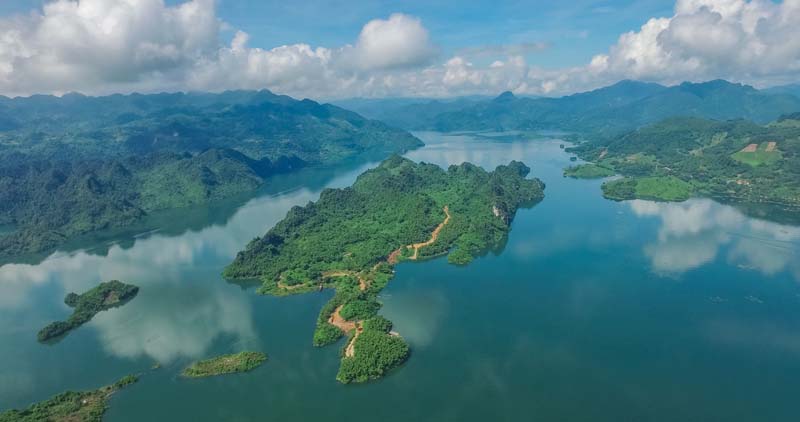



Hoa Binh Lake’s edge
Beside the landscape of natural, charming and poetic background, the lake owns a special culture of ethnic minority as Muong, Tay, Dao and Thai. Also, the lake has famous spiritual sites such as Bo temple, Co temple, Cau temple and King Le stone which are believed in deep cultural and spiritual values, and become a tourist site for many visitors. Hoa Binh Lake has a special geography location that is located in the central tourist area of the Northern Vietnam and next to Ha Noi capital as well as many provinces. As a result, this is an advantage to attract tourists, business guest and visitors travelling from Ha Noi and provinces to Hoa Binh at the weekend.
On 1st of August 2016, the Prime Minister issued Decision No. 1528/QD-TTg approving the whole plan for development of national tourism as Hoa Binh Lake (in Hoa Binh province) by 2030.
The Resolution sets out some specific goals such as: In 2020, Hoa Binh Lake will receive about 630.000 visitors. By the year 2025, this will increase to 1.020.000 visitors and strive for the year 2030 to welcome 1600.000 visitors. Consequently, the total revenue from tourists will reach to 200 billion VND by 2020, 580 billion VND by 2025 and 1.800 billion VND by 2030.
The Resolution also provides some specific solutions on mechanisms and policies in order to attract more investments for developing tourism in Hoa Binh Lake. In details, it will create favorable conditions for organizations, individuals and enterprises to develop tourist products such as: spiritual tourist products of Bo temple (in Cao Phong and Da Bac districts) and Coi Co temple (in Hien Luong commune of Da Bac); ecological and relaxing tourist products of Sung island (in Tien Phong commune of Da bac) and Ngoi Hoa Bay of Hoa Lake (in Ngoi Hoa commune of Tan Lac); or developing community tourism in hamlets and villages such as Ngoi, Tru, Ke and Da Bia hamlets. Moreover, the priority is to advance ecological, relaxing and cultural tourist products, and enhance tourist supports.
Finally, it will implement a program connecting some Hoa Binh Lake tourist sites to some hydroelectric reservoirs in Son La, Dien Bien and Lai Chau provinces by the waterway route on Da River. In addition, it will create more tourist products that are special and have high quality in a bid of meeting the needs and increasing demands of domestic and international tourists.